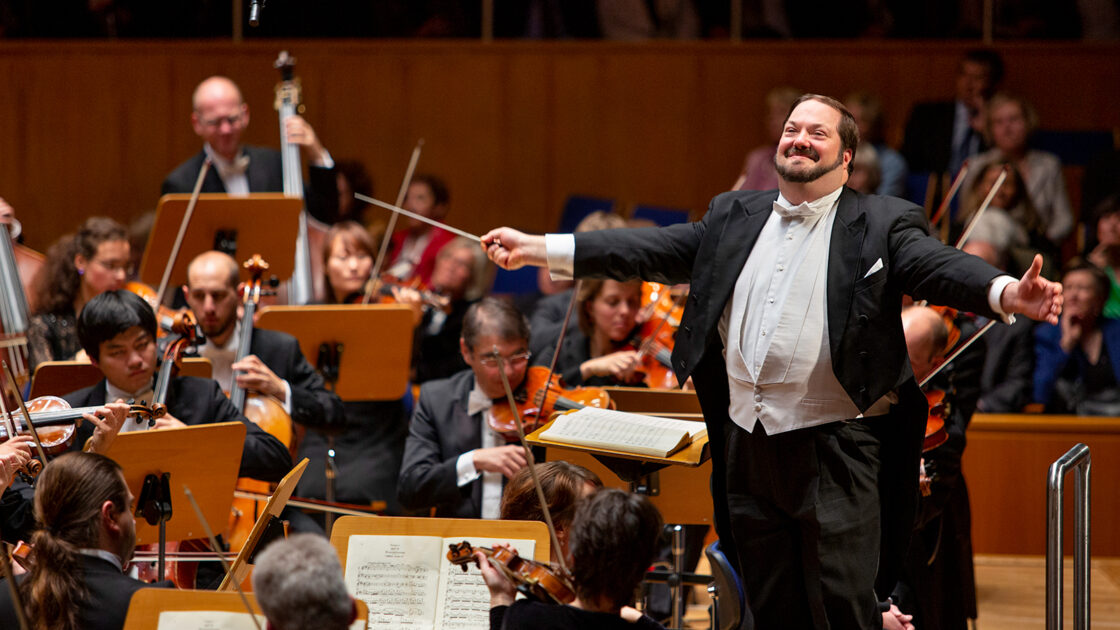

|
A seasoned conductor well-known among the international opera houses, John Fiore is praised for his musicality and his skillful expression on the podium. Maestro Fiore has led acclaimed performances in a diverse range of symphonic and operatic repertoire with some of the finest orchestras and opera companies in the world. He is a frequent guest conductor at many of the foremost opera houses in Europe and the United States, with which he enjoys enduring relationships. After returning to the Gran Teatre del Liceu in June to conduct Tosca, highlights of Mr. Fiore’s 2019-20 season include a new production of Samson and Delilah at the Washington National Opera, Eugene Onegin at the Royal Swedish Opera, La Forza del Destino at the Deutsche Oper Berlin, Fidelio, Les Comptes de Hoffman, and Die Fledermaus with his frequent collaborators at the Semperoper Dresden, and symphonic concerts with the Munich Radio Orchestra, Staatstheater Nurnberg Orchester, and Robert Schumann Philharmonie, among others.
Mr. Fiore continues to be a regular guest at many of the world’s leading opera houses. In Europe, he has appeared at the Bayerische Staatsoper (Un ballo in maschera, Aida, Nabucco, Der Fliegende Holländer, Tosca, Carmen), Semperoper Dresden (Die Walküre, Arabella, Die Entführung aus dem Serail, Nabucco, Aida, La traviata, La cenerentola), Deutsche Oper Berlin (Turandot, La forza del destino), Rome Opera (La traviata), Teatro San Carlo (Rusalka), Teatro Carlo Fenice (La bohème, La Gioconda), Zurich Opera (Tristan und Isolde), Grand Théâtre de Genève (Parsifal, Andrea Chénier, Nabucco), Opéra National de Bordeaux (Norma), and the National Theatre in Prague (Parsifal, Eugene Onegin, La bohème), among others. Mr. Fiore also conducted often at the Cologne Opera, the company where he made his German debut in 1990 with Manon Lescaut. He has returned there many times for a diverse repertoire of Strauss, Wagner, Verdi, Puccini and Janáček, and in addition conducted the city’s historic and renowned Gürzenich Orchester in many symphonic programs. In the United States, he has appeared frequently at the Metropolitan Opera, leading over one hundred performances of nearly a dozen operas, among them the Met’s premiere production of Dvorak’s Rusalka, (1993, and revival in 1997) as well as Aida, La Traviata, Madama Butterfly, La Bohème, Un ballo in maschera, Carmen, and Tosca. He has long enjoyed relationships with both the Chicago Lyric, San Francisco, and Santa Fe Operas, and also has been to the Houston Grand Opera to conduct Tannhäuser. In recent seasons Mr. Fiore has been exploring seminal twentieth century works, including a cycle of the major Janáček operas, Berg’s Lulu, Debussy’s Pelléas et Mélisande, and Ligeti’s Le Grand Macabre. In the 14/15 season, he led a new Jiří Heřman production of the opera rarity Pád Arkuna (The Fall of Arkun), the final stage work of Czech composer Zdeněk Fibich, at the National Theatre in Prague. In the same season with the Norwegian Opera, he conducted the world premiere of Jüri Reinvere’s Peer Gynt based on Ibsen’s play of the same name, as well as a double-bill of Hindemith’s Sancta Susanna and Zemlinsky’s A Florentine Tragedy, staged for the first time in Norway. In summer 2003 maestro Fiore led the world premiere of Bright Sheng’s Madame Mao at Santa Fe Opera, and in January 2005 he conducted the highly successful world premiere of Christian Jost’s Vipern for the Deutsche Oper-am-Rhein. Born in New York City to a musical family, Mr. Fiore received his earliest musical training from his father, a pianist and choral director, and his mother, a singer. His family moved to Seattle, where he studied piano, cello and other string instruments. Mr. Fiore began his professional musical activities at age 14 as a pianist and coach for the Seattle Opera’s annual production of Wagner’s Der Ring des Nibelungen, a job which he continued for six summers. He later attended the Eastman School of Music in Rochester, New York. In 1981, he joined the staff of the Santa Fe Opera, where he developed an affinity for the operas of Richard Strauss. Within a short period of time, he became a prized assistant in three of North America’s most respected companies: the San Francisco, Chicago Lyric and Metropolitan Operas. In the summer of 1986 he went to Europe, assisting Zubin Mehta for Die Meistersinger in Florence, and then to the Bayreuth Festival, where he worked with Daniel Barenboim on Tristan und Isolde, returning the following year for Parsifal and Tristan and again in 1988 for the Harry Kupfer Ring production. During this period he also freelanced as an assistant to the great Leonard Bernstein. Fiore made his debut at the San Francisco Opera conducting Gounod’s Faust in 1986, thus beginning his own conducting career. In 1990 he embarked on an international symphonic career as well, making debuts on three continents. Since then Mr. Fiore has continued to build his repertoire and orchestral relationships. In the summer of 1996, stepping in for Robert Shaw, Mr. Fiore made a critically acclaimed debut with the Los Angeles Philharmonic at the Hollywood Bowl conducting Verdi’s Requiem. In North America, he has since conducted the Boston Symphony Orchestra, Minnesota Orchestra, Seattle Symphony, Toronto Symphony, and New York Chamber Symphony, to name but a few. In Europe, guest orchestral engagements have included the Dresden Staatskapelle, orchestra of the Deutsche Oper Berlin, Bamberger Sinfoniker, Munich Radio Orchestra, Gürzenich Orchester, Orchester Rheinland-Pfalz, Orchestre de la Suisse Romande, Accademia Nazionale di Santa Cecilia, Orchestra del Teatro La Fenice, Orchestra del Teatro Comunale di Firenze, Orchestra della Svizzera Italiana, Slovenian Philharmonic, Orchestre National de Lyon, Orchestre Philharmonique de Montpellier, and Basel Radio Symphony Orchestra, among others. == Biography from the Opus3artists website, July, 2019 == Names which are links in this box and below refer to my interviews elsewhere on my website. BD |
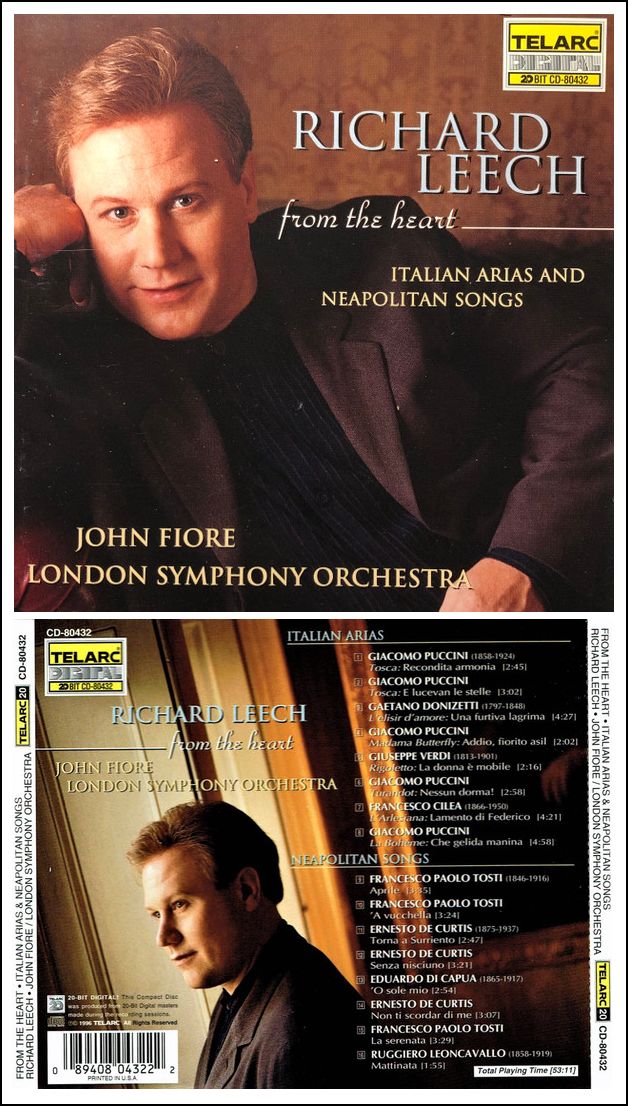
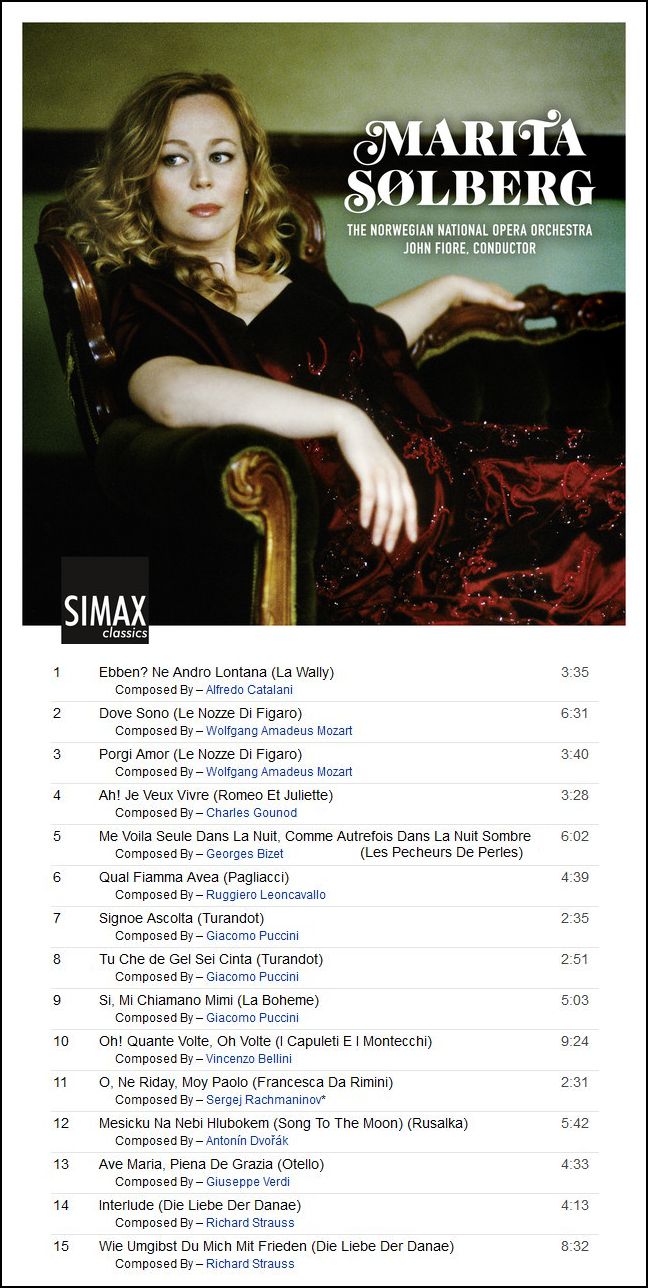
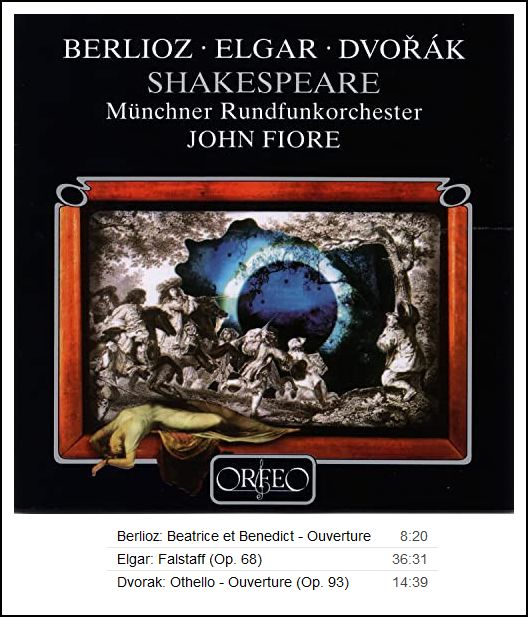
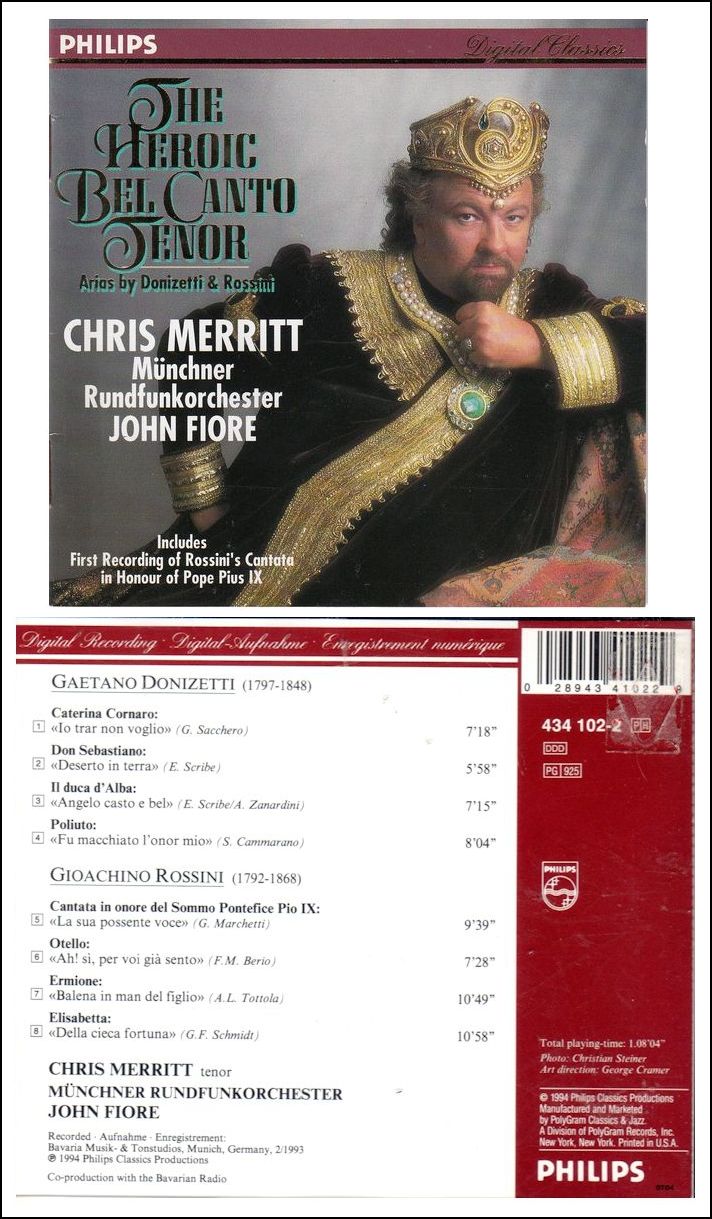
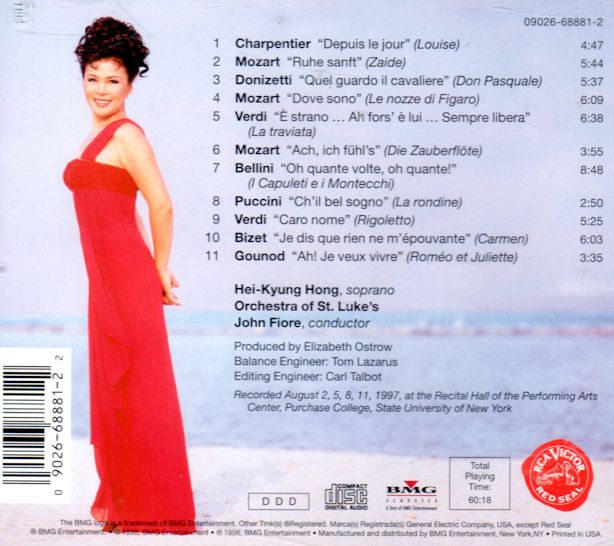
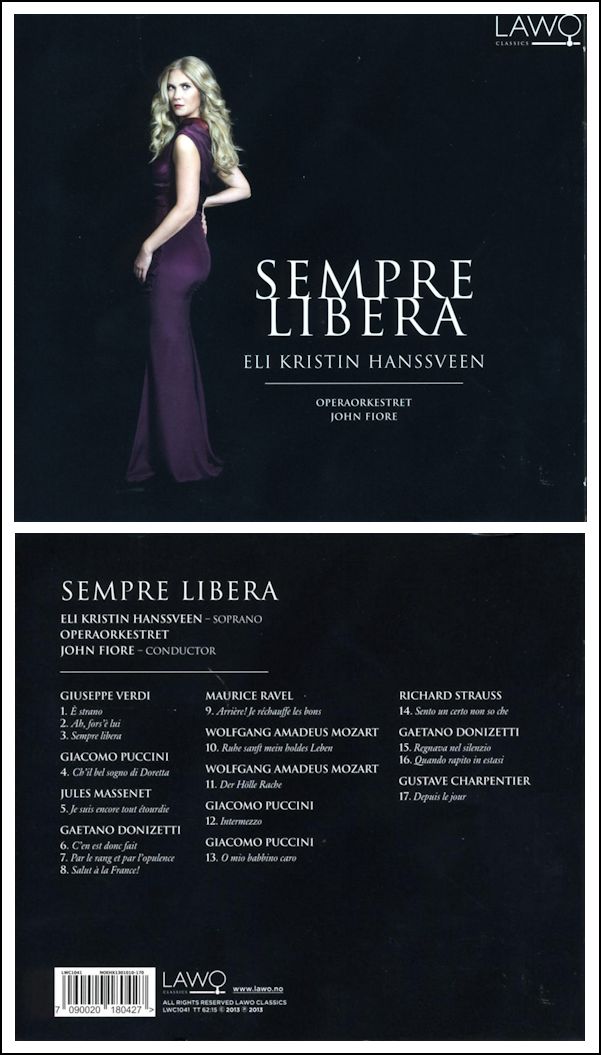
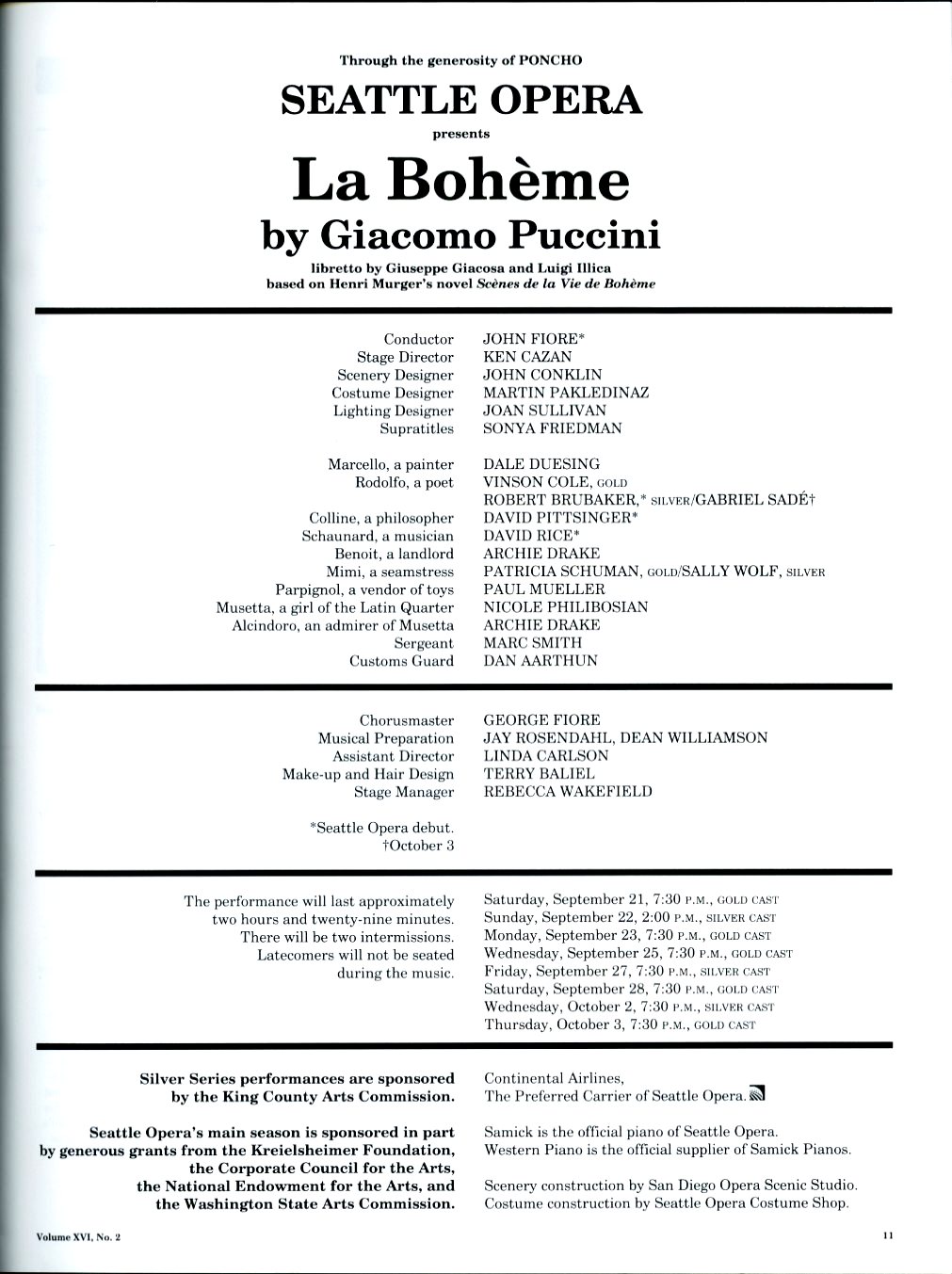
© 1994 Bruce Duffie
This conversation was recorded in Chicago on December 15, 1994. Portions were broadcast on WNIB two weeks later. This transcription was made in 2022, and posted on this website at that time. My thanks to British soprano Una Barry for her help in preparing this website presentation.
To see a full list (with links) of interviews which have been transcribed and posted on this website, click here. To read my thoughts on editing these interviews for print, as well as a few other interesting observations, click here.
Award - winning broadcaster Bruce Duffie was with WNIB, Classical 97 in Chicago from 1975 until its final moment as a classical station in February of 2001. His interviews have also appeared in various magazines and journals since 1980, and he now continues his broadcast series on WNUR-FM, as well as on Contemporary Classical Internet Radio.
You are invited to visit his website for more information about his work, including selected transcripts of other interviews, plus a full list of his guests. He would also like to call your attention to the photos and information about his grandfather, who was a pioneer in the automotive field more than a century ago. You may also send him E-Mail with comments, questions and suggestions.